Sudan timeline October-December 2024: Reports of famine and calls for peace overshadowed by war
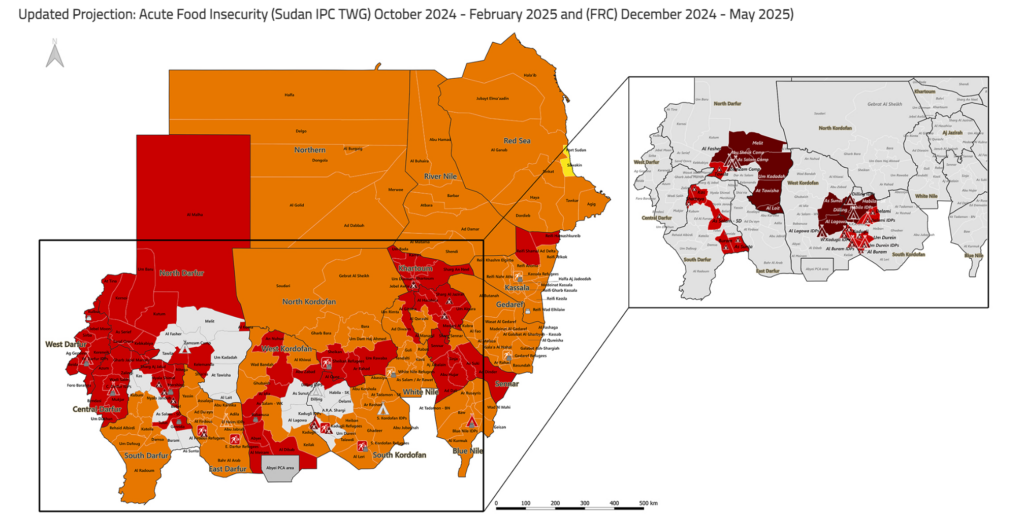
Six-month IPC projection of food insecurity in Sudan: Orange is Phase 3 = Crisis, red is Phase 4 = Emergency, and dark red is Phase 5 = Catastrophe (Map: IPC)
As the situation continues to deteriorate in Sudan to devastating levels, the international community confines itself to repeating calls for a dialogue and a ceasefire. The Sudanese Armed Forces (SAF) and its paramilitary counterpart Rapid Support Forces (RSF) have been fighting each other in a highly destructive war since April 15, 2023.
While a prominent Sudanese research institute warns of “fading and complicated peace prospects,” others are cautiously optimistic about Sudanese officials’ commitment to peace. The RSF attempts to gain legitimacy through the establishment of civilian governance in Khartoum, as the SAF aims to establish its power through the de-facto government in Port Sudan.
International organisations alert that the conditions in Sudan are set to worsen exponentially; the violence will further escalate, and the humanitarian situation will deteriorate even more. Sudan has risen to the top four countries globally for the highest acute malnutrition rates. The number of people in Sudan forced to flee their homes surpasses 11 million, which is nearly 30 per cent of the population. More than three million others have fled the country.
Towards the end of the year, famine is declared in North Darfur and the Nuba Mountains region, with other states and regions set to follow suit. Sudanese leaders and warring parties seem to have their heads stuck in the sand, as the violence continues with little regard for civilians in the battle to (re)claim territory. Of particular note is sexual violence being used as a weapon of war, extrajudicial killings and detentions, the targeting of particular ethnic groups, and the broad impact of the war, floods, and wildfires on Sudan’s ability to remain resilient.
October: The SAF continues its offensive against the RSF in central Sudan and the west of the country, with the Darfur Joint Force. Hundreds of people are killed in airstrikes and shelling. Violent assaults on civilians by members and allies of both warring parties continue. The humanitarian situation is further deteriorating. Sudan is now among the top four countries globally for the highest acute malnutrition rates. The USA, sanctioning RSF and SAF directors this month, says it is working on a peace plan. The African Union (AU) urges dialogue between the belligerents that have been fighting each other for 18 months.
October 1: Sudanese condemn “extrajudicial killings of young men” in Khartoum North (Bahri), allegedly by Islamists fighting alongside the army. The country’s media sector “has been decimated” by the war. Both the SAF and RSF are allegedly targeting people based on ethnicity and political affiliation.
October 2: Fierce fighting is again reported from El Fasher, the capital of North Darfur. The SAF-allied Darfur Joint Force, made up of ex-rebel fighters, seizes strategic areas in North Darfur, and Zaghawa and Arab leaders sign an accord. US senators push for action on the Sudan conflict. The US Special Envoy to Sudan, Tom Perriello, is developing a roadmap to achieve peace.
October 3: Sudan is among the top four countries globally for the highest acute malnutrition rates, the UN Office for the Coordination of Humanitarian Affairs (OCHA) reports. The RSF is deployed heavily in areas north of El Geneina, the capital of West Darfur, following battles with the Darfur Joint Force. The Sudanese Emergency Rooms are endorsed for the Nobel Peace Prize.
October 4: Dozens of people are killed and more than 200 others wounded in air raids on the El Koma town market, North Darfur. The Sudanese Rights and Freedoms Defence Committee announces that one of its lawyers defending the leaders of the Civil Democratic Forces alliance (Tagadom) is being detained in Port Sudan.
October 5: UNICEF sends 1.4 million doses of oral cholera vaccines to Sudan.
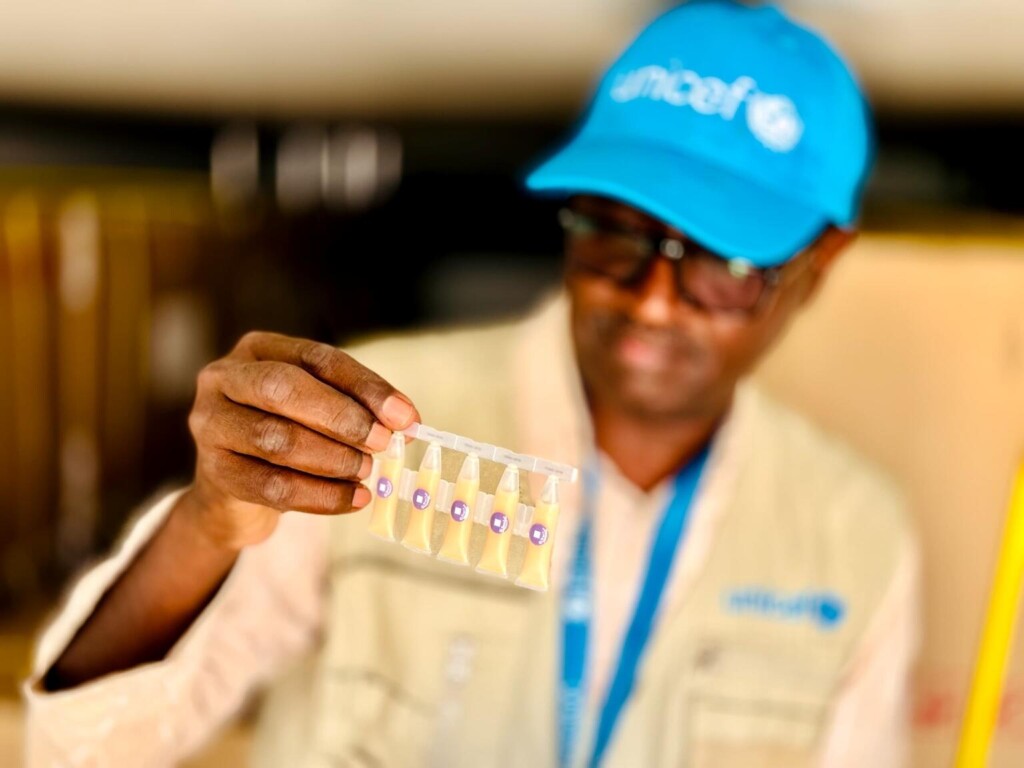
October 7: In southern Khartoum, which is occupied by the RSF, hospitals struggle amid airstrikes, diseases, and hunger.
October 8: Emergency Lawyers condemn the killing of hundreds of people in SAF air raids on RSF-controlled areas. The US Treasury sanctions RSF procurement director Algoney Dagalo. Sudanese refugees, driven by economic woes, are increasingly returning from Egypt.
October 9: The UN Human Rights Council in Geneva extends the mandate of its Sudan fact-finding mission. RSF Commander Lt Gen Mohamed ‘Hemedti’ Dagalo lashes out at political actors within Sudan and abroad.
October 10: Trauma Recovery Organisation Sudan urges more mental health and psychosocial support to the many war victims. The federal Ministry of Education excludes students living in areas under RSF control from sitting for the upcoming Sudan Certificate secondary school exams.
October 11: The Sudan Transparency and Policy Tracker (STPT) warns that the recent speech by RSF Commander Hemedti marks a shift towards military escalation.
October 12: Relief organisations in North Darfur warn that their life-saving service to thousands of malnourished children could run dry due to security issues.
October 13: SAF Commander Abdelfattah El Burhan arrives in Sennar following the recapture of the Jebel Moya strategic area. The Sudan Media Forum (SMF) speaks about patterns of sexual violence, abductions, and killings by the warring forces in areas under their control. The dire fate of the remaining residents on Tuti Island appears to be sealed. Justice Africa Sudan reports that a group of fleeing Nuba Christians has been detained by Military Intelligence.
October 14: Fierce SAF-RSF battles continue in Khartoum, Sennar, and North Darfur. Residents of El Geneina and Nyala “flee their homes in panic” as SAF bombs state capitals in West and South Darfur. Médecins Sans Frontières (MSF) calls for urgent action on Sudan at the European Parliament. The AU rejects military solutions in Sudan and calls for dialogue.
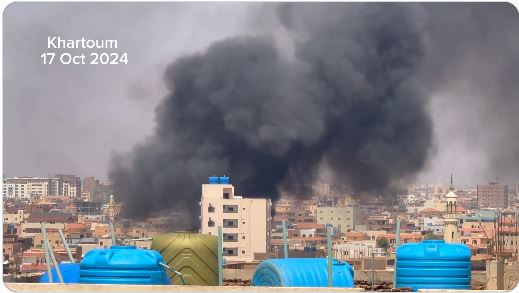
October 15: The Darfur Network for Human Rights repeats its calls for intervention to save the displaced in Kalma camp, South Darfur, from attacks by armed herders.
October 16: A high-level delegation from Juba visits Port Sudan to discuss the resumption of oil exports from South Sudan through Sudan.
October 17: The SAF continues its attempts to regain central Khartoum. Residents of El Geneina “hear new warplanes.” Human Rights Watch (HRW) reports that Sudanese refugees in Amhara, Ethiopia, are at “grave risk” due to the dire security situation.
October 18: Activists urge the International Committee of the Red Cross (ICRC) to help evacuate residents of Tuti Island. Social media platform X suspends the accounts of RSF Commander Hemedti and four others. Sudanese jurists denounce the formation of a new ‘anti-empowerment removal committee’ in Port Sudan.
October 19: Finance Minister Jibril Ibrahim calls for the immediate closure of the Adré humanitarian border crossing with Chad. The Sudanese government in Port Sudan prevents a UN humanitarian delegation from visiting Darfur.
October 20: Senior RSF commander Abu Agla Keikel defects and surrenders himself and his troops to the SAF in Wad Madani, capital of El Gezira.
October 21: Widespread armed robberies threaten Central Darfur residents.
October 22: Activists in Khartoum report cases of malnutrition, in addition to summary executions of people by the RSF. The Russian embassy in Port Sudan collaborates with local authorities to investigate the downing of a cargo plane in North Darfur. Sudanese students in Egypt are deprived of sitting the Sudanese Certificate exams.
October 24: The SAF seize more key areas in Sennar; the defection of Gen Keikel heightens fears of RSF revenge attacks on civilians in El Gezira. Fierce SAF-RSF battles continue in El Fasher in North Darfur. The US Treasury sanctions the director of the Sudanese Defence Industries System. The UN humanitarian coordinator pledges ongoing support for Sudan. Sudan’s finance minister softens his stance over the Adré border crossing. The SMF warns that the “ongoing conflict deepens lawlessness.” Sudanese refugees are facing “endless displacement.”
October 26: The UN humanitarian coordinator compares the RSF attacks on people in El Gezira with the “violence witnessed in Darfur last year.” The Advocacy Group for Peace in Sudan calls for global action to “address the surge in tribal mobilisation” across Sudan. The African Centre for Justice and Peace Studies (ACJPS) cautions that the many enforced disappearances in Sudan are ‘systematic and escalating’.
October 27: The Sudanese Teachers Committee denounces the government’s decision to confine the Sudanese Certificate exams to the so-called safe areas in the country as “political and discriminatory.”
October 28: Thousands of people flee eastern El Gezira in fear of more RSF revenge attacks. RSF units continue to shell the capital city of North Darfur. UN Secretary-General António Guterres Guterres renews his calls for a ceasefire in Sudan and the Sudanese envoy to the UN seeks RSF accountability. The STPT think tank says their are “fading and complicated peace prospects.”
October 29: The International Organization for Migration (IOM) announces that the number of people displaced by Sudan’s ongoing war has surpassed 11 million. The UN fact-finding mission in Sudan confirms that the sexual assaults by RSF soldiers “aim to terrorise civilians.”
October 30: The growing presence of the ‘Eastern Battalion’ armed forces is fuelling fears of escalation of the war in eastern Sudan.
October 31: Sudanese former Prime Minister Abdalla Hamdok’s visit to the British capital sparks demonstrations in the city.
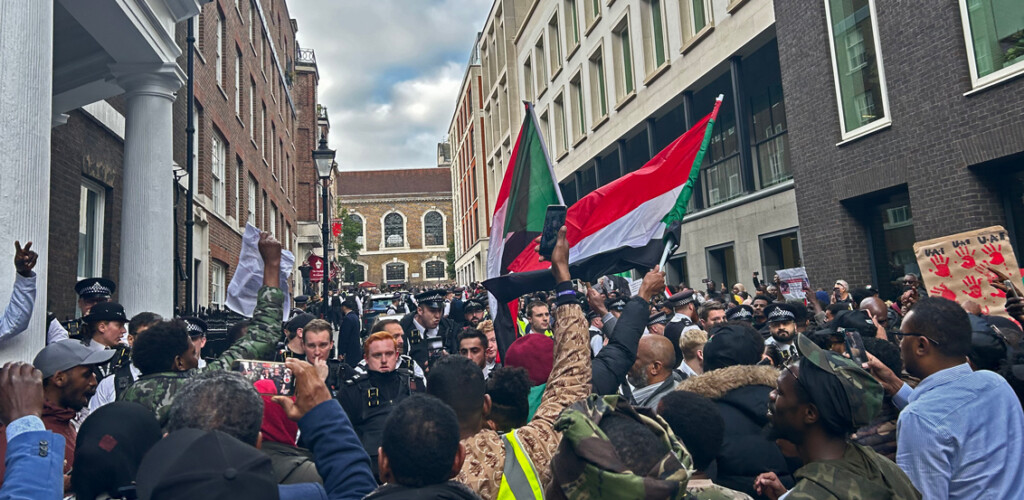
November: The UN Security Council warns that the situation in Sudan is set to worsen exponentially. The replacement of four key federal ministers by El Burhan, who is chair of the Sovereignty Council, elicits severe criticism from the opposition. According to STPT Director Suliman Baldo, the Sudanese army is positioning itself to dominate the country’s post-war economy. The Central Bank of Sudan (CBoS) issues new 1,000 Pound notes, a measure that may turn out to be “counterproductive,” while the RSF sets up civilian governance in Khartoum state Sudanese Certificate exams are postponed once again, to the end of the year.
November 2: The emergency room of Karnoi, in northwestern North Darfur, reports the scorching of villages in the area.
November 3: Gold miners accuse Egyptian soldiers of attacking them on Sudanese territory.
November 4: Gen Abdelfattah El Burhan, SAF Commander and chair of the Sovereignty Council. replaces four federal ministers, including Foreign Affairs. The Strategic Initiative for Women in the Horn of Africa (SIHA) reports torture, gang rapes, and suicides among women and girls in El Gezira. Malaria vaccines roll out across eastern Sudan. Sai Island in northern Sudan permanently bans “toxic” mining mixers.
November 5: UN experts speak about the “impossible situation” facing the people of Sudan. RSF soldiers target various areas of El Fasher with heavy artillery. Sudanese refugees in Libya continue to struggle.
November 6: El Burhan’s replacement of four key ministers faces severe criticism from the opposition. New FA Minister Ali Yousef meets with his Egyptian counterpart in Cairo. The president of the ICRC, concluding a visit to Sudan, calls for greater humanitarian space and respect of international humanitarian law. The Darfur Network warns of a “perilous environment” in Central and South Darfur. The SMF commemorates 13 late Sudanese colleagues, and launches the campaign ‘Silence Kills: No Time to Waste for Sudan’.
November 8: UNHCR reports a ‘devastating milestone’: more than three million people have fled Sudan.
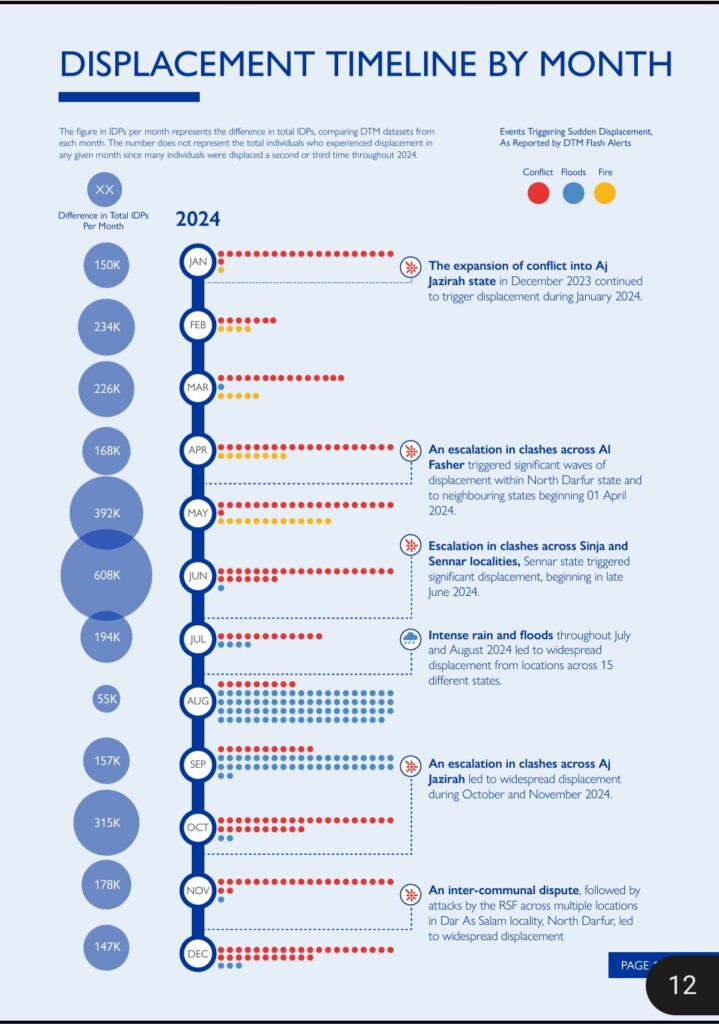
November 9: The CBoS issues a new 1,000 Pound note.
November 11: The World Food Programme (WFP) urges Sudan to “keep crossings open” as aid convoy from Chad heads to Darfur. Sudanese politicians in opposition to the government condemn the recent airstrikes on Darfur. The RSF are accused of “stoking ethnic tensions with tribal recruitment.” Both belligerents are reportedly seeking to enforce a total media blackout.
November 12: The RSF is widely accused of poisoning people in eastern El Gezira. The US Treasury sanctions RSF commander in West Darfur Abdelrahman Juma. The UN Security Council warns that the situation in Sudan is set to worsen exponentially.
November 13: According to STPT Director Suliman Baldo, the SAF is already positioning itself to dominate the country’s post-war economy.
November 14: The UN welcomes the decision of the Sudanese authorities to keep the Sudan-Chad Adré aid corridor open. Amnesty International considers the “French weapons system on APCs in Sudan” a “clear breach of the UN arms embargo” on Darfur. The UN Security Council extends the mandate for the UN Interim Security Force for Abyei (UNISFA) for another year.
November 15: The death toll in Sudan’s war is reportedly extremely conservative. A Sudanese economist expects that the issuance of new banknotes by the CBoS will “encourage illegal currency trade.”
November 16: Cholera is spreading in Khartoum and El Gedaref, in particular among displaced people.
November 17: International organisations call on the Darfur Joint Force to leave Zamzam camp, south of El Fasher, capital of North Darfur. The Sharg El Nil (East Nile) Emergency Room in Khartoum North reports that 150 community kitchens had to close due to a lack of support.
November 18: Russia vetoes a UNSC draft resolution pushing for protection of civilians in Sudan. MSF Sudan reports that “16 per cent of Khartoum’s hospital war-wounded are children.” The US Special Envoy visits Port Sudan and meetings with officials and civil society leaders prove to be “fruitful.” In Kenya, the RSF announces that it is “ready for a ceasefire.”
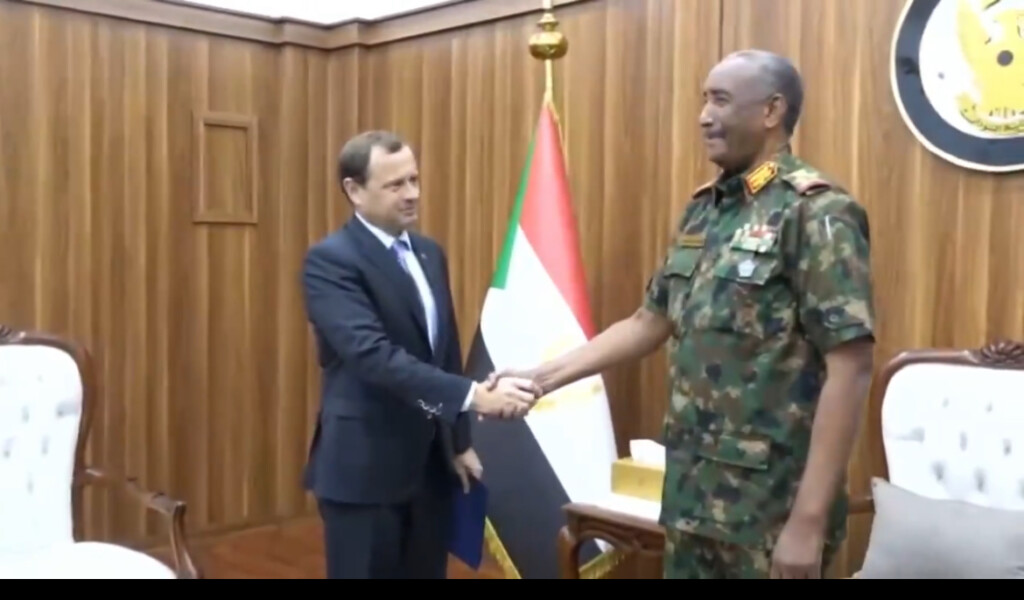
November 19: US Envoy Perriello tells Dabanga that “there’s much, much work to be done” in Sudan.
November 20: The WFP extends registration for humanitarian aid in war-torn El Gezira through cash transfers.
November 21: US politicians aim to block a UAE arms deal, accusing the Gulf state of supplying weapons to the RSF.
November 22: The first WFP convoy reaches North Darfur camp since famine was declared three months previously.
November 25: UN launches global 16-day campaign to combat violence against women, as reports emanate of sexual violence being used systematically as a weapon of war in Sudan.
November 26: RSF denies accusations of gender-based violence in Sudan, as Darfur Women’s Forum protests for an end to the war and violence against women in Nyala, capital of South Darfur. El Burhan visits Eritrea’s capital, Asmara, amid escalating turmoil in Sudan, including reports of Colombian ex-soldiers fighting in Sudan. The African Center for Justice and Peace Studies (ACJPS) and the Sudanese Music Research Center report that over 55 artists have been killed in Sudan since the outbreak of conflict on April 15, 2023.
November 28: Postponed Sudan school exams are rescheduled for December 28 in schools in Egypt that teach the Sudanese curriculum.
November 29: RSF set up civilian administration in Khartoum state; the Civilian Foundress Council consists of 90 members from all localities in Khartoum, Omdurman and Khartoum North (Khartoum Bahri). Activists report that the Sudanese Air Force is bombing El Koma in North Darfur daily.
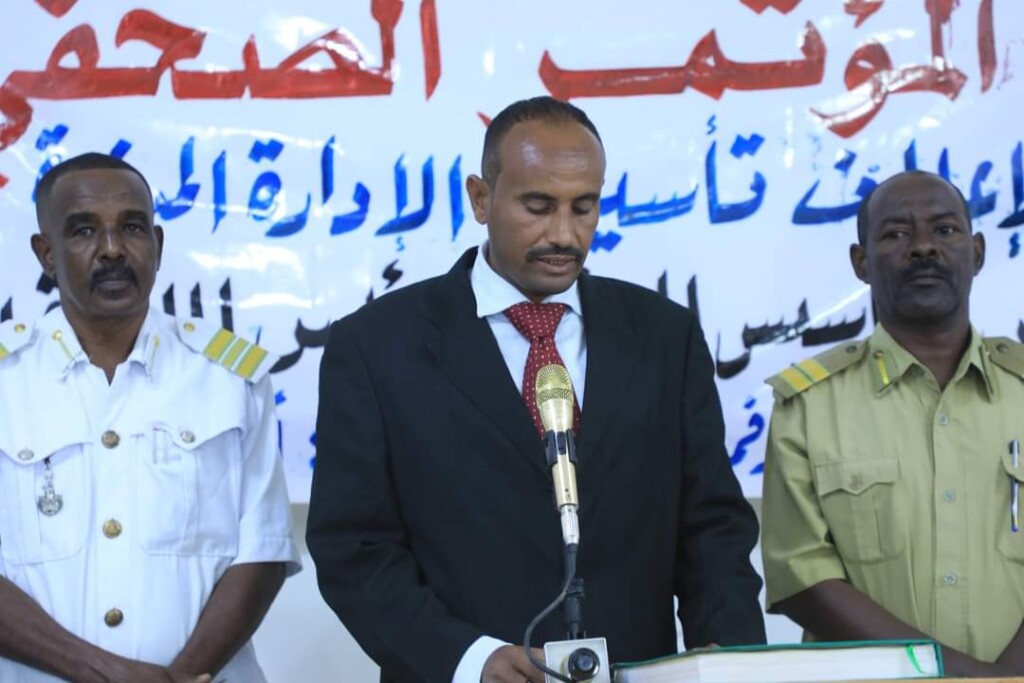
December: As the year draws to a close, hope for peace hits an all time low in Sudan, as reports of attacks, airstrikes, and shelling proliferate in the Darfur region and violence flares in North Kordofan. As global Human Rights Day rolls around at the end of a 16-day UN campaign to combat violence against women, Sudan is reported to have seen “record violence” in 2024. Tagadom hold a conference in Uganda, shortly before Sudan commemorates independence and six years since the overthrow of autocratic rule. Floods, cholera, malaria, and dengue fever are reported, while new 1,000 Pound notes cause tension between the RSF and SAF. Most Sudanese Certificate exams go ahead, despite a number of absences.
December 1: Cholera, malaria, and dengue fever spread in El Obeid, North Kordofan capital. Cholera is also reported in El Fao in western El Gedaref. Six people are reported dead and 12 injured by RSF shelling in North Darfur Zamzam camp, “the only refuge for people from all over Darfur,” according to Darfur Governor Minni Minawi. Following a meeting in Kuwait, the Gulf Cooperation Council Supreme Council renews its call for a ceasefire in Sudan.
December 2: Dabanga receives reports of women being married off to RSF officers in exchange for security in West Kordofan.
December 3: The Tagadom, chaired by former Prime Minister Abdalla Hamdok, launch a leadership conference in Entebbe, Uganda. The UN, Save the Children, and MSF call for urgent international action to de-escalate the “unacceptable levels of human suffering” in Zamzam camp.
December 4: El Burhan makes his third official visit to South Sudan since the outbreak of the war. At least nine people are reported killed and 11 others were wounded following an airstrike by the Sudanese Air Force in El Koma in North Darfur.
December 5: In an interview with Radio Dabanga, Zainab Saleh explains that the pre-existing struggles of people with disabilities have been exacerbated by the conflict. Seven people are killed in an attack on El Fasher, as the governor of North Darfur dismisses 11 native administration leaders for allegedly colluding with the RSF.
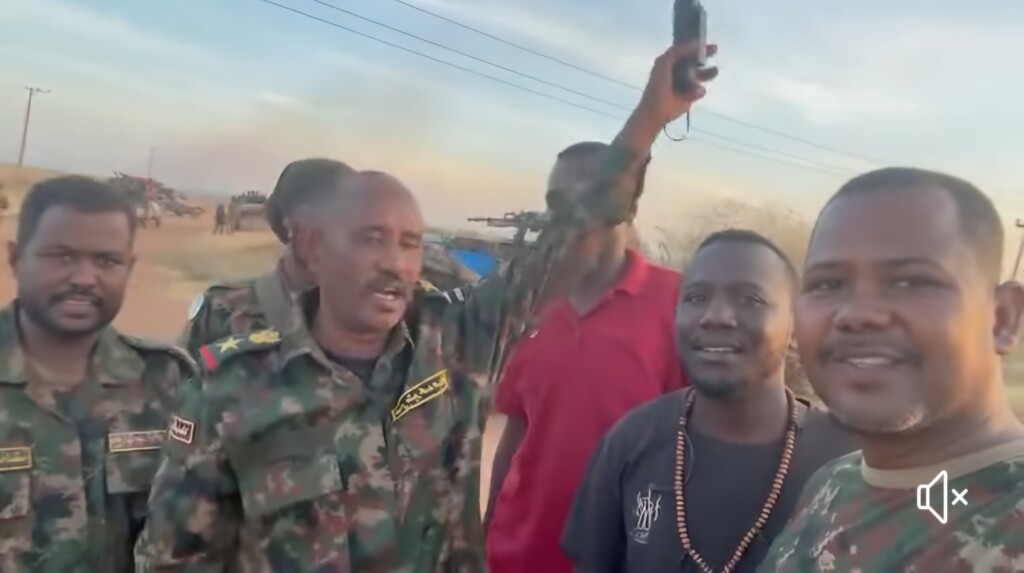
December 7: The SAF continues its attempts to regain control of El Gezira by retaking Wad El Haddad in the south of the state. The RSF regains control over Um Algura locality, east of Wad Madani, capital of El Gezira.
December 8: Battles between the RSF and SAF in Khartoum intensify, killing 31 people. Wildfires destroy palm plantations in Merowe locality, Northern State.
December 9: Atbara Airport in River Nile state is attacked by drone strikes. The RSF is accused of carrying out the attacks.
December 10: HRW reports that the RSF targeted ethnic Nuba civilians in South Kordofan from December 2023 to March 2024. The Armed Conflict Location & Event Data (ACLED) Centre says that Sudan saw record violence in 2024. “As the world marks Human Rights Day, we are, tragically, still reporting daily on widespread human rights violations by all warring parties across Sudan,” writes Kamal El Sadig, Editor-in-Chief of Dabanga.
December 11: As Sudan tops the International Rescue Committee (IRC) 2025 Emergency Watchlist as the world’s largest humanitarian crisis for the second year running, the ICC begins to make closing statements in the case against a former Darfur janjaweed leader. Over 80 people are killed and injured in an RSF El Fasher assault, as bombing resumes on Zamzam camp. Six people are killed and injured by SAF airstrikes in Nyala, South Darfur.
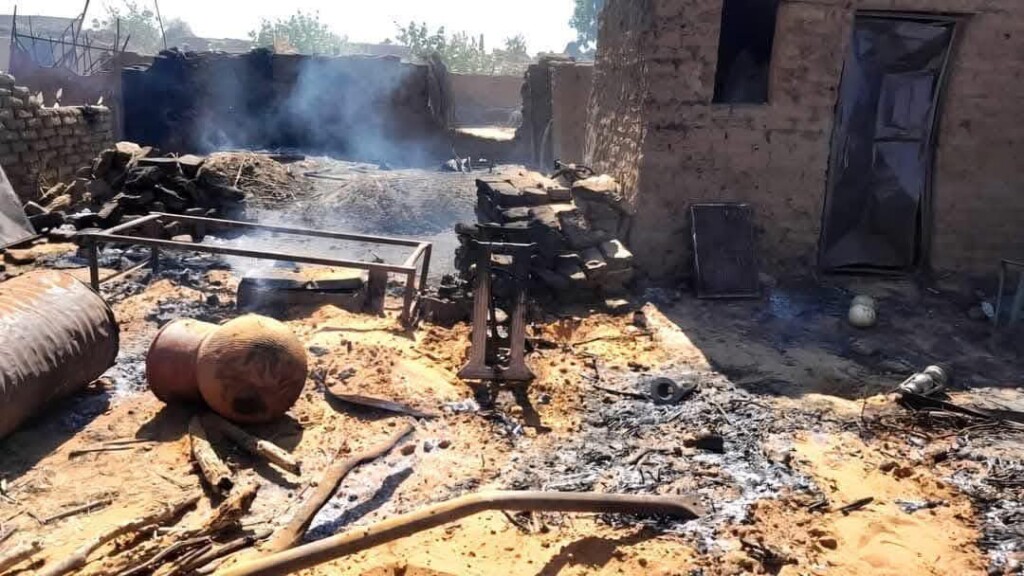
December 12: Forced searches and deliberate grazing haunt farmers in Kutum, located 160 kilometres northwest of El Fasher.
December 13: Yale School of Public Health’s Humanitarian Research Lab (HRL) confirms “large-scale displacement of an unknown number of civilians from Zamzam camp following repeated heavy artillery bombardment over 12 days by the RSF.”
December 15: Sudan’s Emergency Lawyers warn of educational inequalities as Sudanese Certificate exams loom on December 28. A Sudanese Air Force strike on Wad Madani claims the lives of at least nine civilians. Violence flares northeast of Um Ruwaba, North Kordofan, as the SAF forces report halting the RSF’s westward advance in the state. An RSF infiltration attempt on El Fasher’s southeastern outskirts is repelled after prolonged skirmishes.
December 16: The EU sanctions four senior SAF and RSF officials for involvement in acts threatening peace, stability, and efforts to restore Sudan’s political transition.
December 17: The RSF initiates a coordinated attack in White Nile state, targeting the Kenana Air Base and the Ed Duweim locality. SAF forces reportedly repel a large-scale RSF assault in El Awj. Food aid is announced for 3,300 Sudanese refugee families in Libya, and the UN condemns intensified airstrikes and shelling in Darfur and Khartoum.
December 18: 10 people are reported killed, and 20 wounded, after the RSF shell the MSF-supported Saudi Hospital in El Fasher.
December 19: Sudan commemorates the declaration of independence within Parliament in 1955 and the sixth anniversary of the December Revolution that toppled 30 years of autocratic rule. Three World Food Programme (WFP) workers are killed by airstrikes at its field office in the Blue Nile region. US Secretary of State Antony Blinken announces $200 million in additional humanitarian assistance to Sudan.
December 21: Sudan’s Joint Forces claim RSF stronghold El Zurug in North Darfur. French President Emmanuel Macron calls for an immediate ceasefire in Sudan, as the British Office and the Canadian and German embassies in Sudan urge the warring parties to facilitate the movement of students taking their exams on December 28.
December 23: In Port Sudan, El Burhan talks post-war plans with Ramtane Lamamra, the Personal Envoy of the United Nations Secretary-General to Sudan. Protesters block a national road demanding banking facilities in Red Sea state, as the Sudanese authorities extend the deadline for exchanging old banknotes by one week.
December 24: Sudan’s acting agriculture minister suspends the country’s participation in the Integrated Food Security Phase Classification (IPC) system, just before their latest report declares a famine in North Darfur and the Nuba Mountains region, along with imminent famine in South Darfur.
December 25: Weeks of floods and cholera devastate White Nile state communities. The Russian embassy in Khartoum denies “claims by Western media” that Sudan has refused to host a Russian naval base in Port Sudan on the Red Sea.
December 26: The first aid convoy reaches Khartoum since the outbreak of the war in Sudan. Sudanese Certificate exams are delayed once again in Delling in South Kordofan and El Nahud in West Kordofan to March 2025.
December 28: 25 per cent of registered candidates for the Sudanese Certificate exams are reported absent.
December 29: Ramtane Lamamra, the United Nations Secretary-General’s Personal Envoy for Sudan, expresses cautious optimism about Sudanese officials’ commitment to peace.
December 30: In RSF-controlled areas, civil administrations introduce strict measures criminalising transactions involving the new currency introduced to SAF-controlled areas.
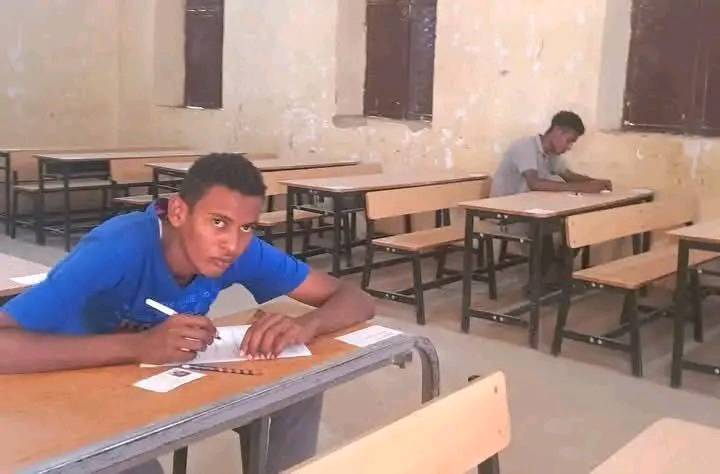
Previous timelines
Sudan timeline July-September 2024: Thousands starving as war continues without mercy
Sudan timeline April-June 2024: Sudan war ‘remains overlooked by international community’
Sudan timeline January-March 2024: Sudan becomes ‘the largest humanitarian crisis in the world’
Sudan timeline October-December 2023: War deepens Sudan’s suffering
Sudan timeline July-September 2023: Sudanese ‘in survival mode’
Sudan timeline April-June 2020: Covid-19 marks all aspects of life, inflation soars
Sudan timeline January-March 2020: Little relief to the country’s economic, security woes
Sudan timeline October-December 2019: Interim government put to the test
Sudan timeline July-September 2019: Turbulent transformation from tyranny








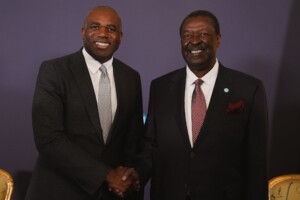


 and then
and then